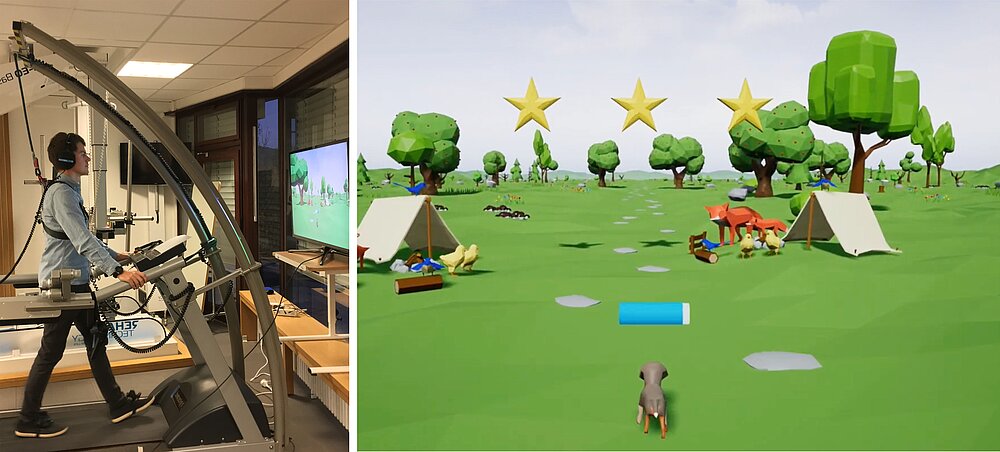Gait Rehabilitation
Virtual reality (VR) offers new possibilities in the rehabilitation of neurological disorders. Previous studies demonstrated that VR-based treadmill training can improve therapy outcomes for patients with gait disorders.
Within the current project, a VR application was implemented to increase training motivation by including gamification elements (Kern et al., 2019). In a second step, we conducted studies with healthy participants and persons with stroke or multiple sclerosis to demonstrate the feasibility of immersive VR-based gait rehabilitation and evaluate different display methods. Specifically, we compared the immersive presentation via a head-mounted display (HMD) to a semi-immersive presentation (via a monitor) and a conventional treadmill training without VR (Winter et al.).
Publications
-
Winter, C., Kern, F., Gall, D., Latoschik, M. E., Pauli, P., & Käthner, I. (2021). Immersive virtual reality during gait rehabilitation increases walking speed and motivation: A usability evaluation with healthy participants and patients with multiple sclerosis and stroke. Journal of NeuroEngineering and Rehabilitation, 18(1), 68. https://doi.org/10.1186/s12984-021-00848-w
- Kern, F., Winter, C., Gall, D., Käthner, I., Pauli, P., & Latoschik, M. E. (2019). Immersive Virtual Reality and Gamification Within Procedurally Generated Environments to Increase Motivation During Gait Rehabilitation. 2019 IEEE Conference on Virtual Reality and 3D User Interfaces (VR), 500–509. https://doi.org/10.1109/VR.2019.8797828
Contact
Carla Winter (carla.winter@stud-mail.uni-wuerzburg.de)
Dr. Ivo Käthner (ivo.kaethner@uni-wuerzburg.de)
Dominik Gall (dominik.gall@uni-wuerzburg.de)
Collaboration
Duration: since 2017







